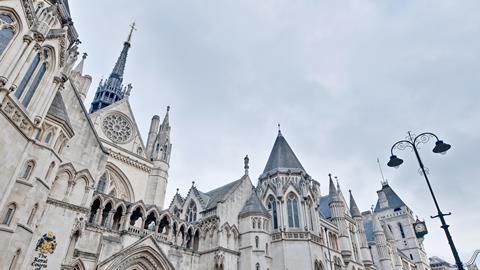A solicitor struck off for misconduct over improper client account transfers has failed in a bid to remain anonymous during his High Court appeal.
Harry Francis Cottam was struck off in October 2023 by the Solicitors Disciplinary Tribunal after having been found guilty of misconduct. Cottam faced two allegations before the SDT, one of making dishonest transfers of client money into the office account and the creation of false invoices. The allegation over the improper transfers of money was found proved and the other dismissed.
Before the substantive appeal Cottam, whose SDT hearing was heard in private on medical grounds, conceded the appeal hearing was in open court, but asked if he could be granted anonymity on the same grounds.
Cottam is now working as a legal adviser. He told the court that ‘a struck-off solicitor is a social leper’ and the medical reports confirmed ‘what detriments and the dangerous effect publication would have on my wellbeing’.
Matthew Edwards, for the Solicitors Regulation Authority, opposed the request. Cottam was 'advertising himself as a qualified legal adviser [and it is] only right that those who choose to instruct Mr Cottam are aware he was, or is currently, a struck-off solicitor'.
Mr Justice Macdonald refused to grant anonymity and said the appeal would proceed in open court. He said: ‘I am persuaded by the arguments of the SRA that there is a very strong public interest in the public knowing when a regulated professional has been struck off and the process by which that has taken place.’
Read more
Cottam appealed against the strike-off on a number of grounds. He told the court the SDT had not properly evaluated his medical evidence and had made incorrect assertions of fact in its judgment, including upholding the allegation against him.
Representing himself, Cottam told the court that the SDT had based its decision on the suggestion that the bank transfers ‘could not possibly be paid’ without Cottam’s knowledge and authority, rather than motivation or lack of motivation’ and had not evaluated his evidence. ‘That was what persuaded them to make the decision that they made,’ he said.
He told the court a female employee of the firm had done the transfers but had ‘not stolen the money’ and he had ended up in that position ‘because of my inactivity and lack of attention to those issues.’
‘She had put the company in considerable difficulty in its professional obligations. I know I took the wrong decision, maybe I should have reported her to the SRA and dealt with her in that way, but I did not think that was the appropriate thing to do.
‘It was a problem created by my own lack of attention to the company rather than her. She did not really know what she was doing. I did not resolve the matter in the way that I should have done but the point I am making here is the lack of evaluation of my evidence. The SDT just did not evaluate this at all.’
Cottam, whose firm was intervened in, said: ‘I took overall responsibility for what happened, whether or not I knew personally at the time what happened.’
Edwards, for the SRA, said: ‘Just because it is not considered or documented in the judgment does not mean it was not considered.’
He told the court there had been a ‘clear analysis’ of Cottam’s medical evidence by the SDT, though his argument that the medical evidence had not been considered ‘was not in the grounds of appeal’.
Referring to the SDT judgment, Edwards said: ‘It is clear analysis. In my submissions, it is simply not right to say that evidence has not been evaluated.’
He added: ‘That evidence [of the transfers that could not happen without Cottam’s knowledge] could have been tested at the tribunal… but it simply was not. It was adduced with the evidence of the financial investigation officer, and he simply was not cross-examined. On that basis, it is only fair that the tribunal accepted that evidence.’
‘Every decision taken was in accordance with their guidance. There is no evidence the tribunal decision was wrong, no evidence of any procedural irregularity. The decision should not be interfered with by this court and the appeal should be dismissed.’
Judgment was reserved.



























